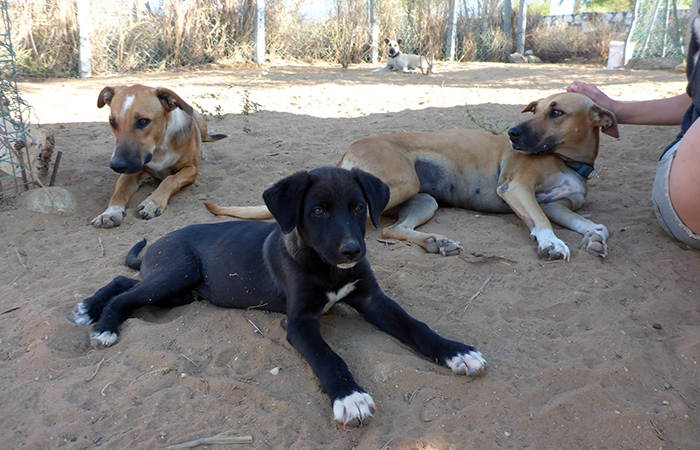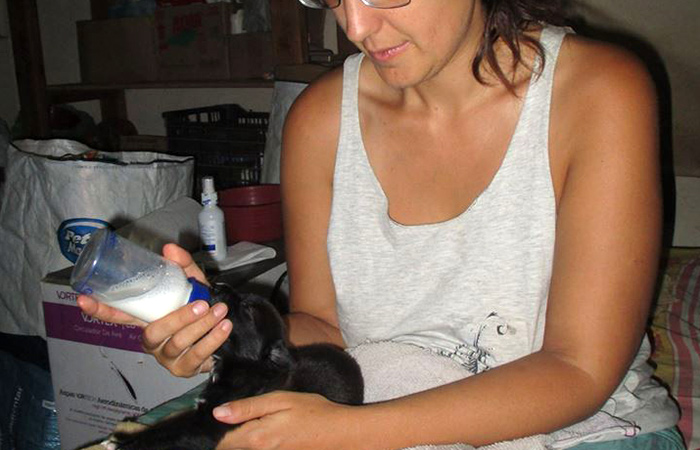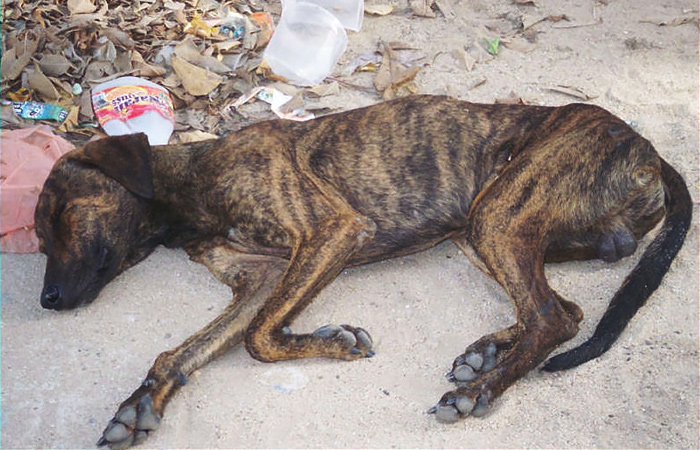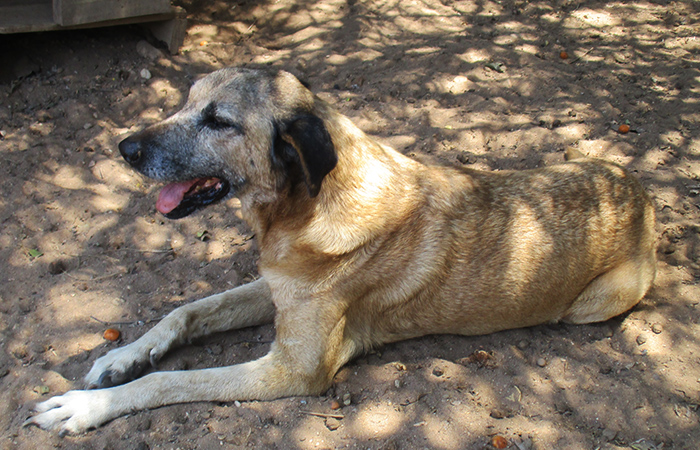OUR MISSION
At PEP our mission is threefold:
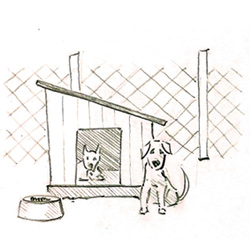
TO MAINTAIN A REFUGE
… where rescued animals can find a find a safe home, care, food and compassionate human interaction.
PEP’s primary mission is, and always has been:
• to provide shelter, medical help, food and loving care to homeless, starving, sick, injured and abused dogs
• to find responsible, loving homes for the shelter dogs through our adoption program
• to provide a sanctuary for dogs who, for reasons of age, health and/or previous trauma are not candidates for adoption
• to be the last memorable experience for the old and terminally ill who end their days at the shelter
The dog shelters, one for puppies and another for adults, were opened in March and April of 2009 and have since provided a refuge to more than 500 dogs most of whom were eventually adopted into new homes.

TO CONTROL THE GROWTH
... of the local dog population through providing and promoting free or low cost spaying and neutering.
PEP organized 12 sterilization campaigns, free or at low cost to the community, and managed to sterilize more than 2000 dogs and cats between 2008 and 2012. Since 2012 the number of dogs in the shelter increased dramatically and there was no longer the time, nor the resources to arrange further campaigns. Fortunately, there is another organization in Puerto Escondido that holds one to two free sterilization campaigns a year and also provides low cost spaying and neutering for a certain number of dogs and cats on most Sundays of the year. During the campaigns PEP spreads the word to the local communities, actively recruits dogs and cats for spaying or neutering and even provides transportation to and from the locations when necessary.
Starting in 2018, it is PEP’s goal to offer at least one additional sterilization campaign a year for the dogs and cats of Puerto Escondido and is actively seeking others to partner in this venture.
In addition to controlling the growth of the dog population sterilization helps to prevent the rampant spread of transmissible venereal tumors, known as TVT. This is a sexually transmitted cancer and is highly contagious. When caught early it is very treatable with chemotherapy and the prognosis for a full recovery is excellent but many street dogs will never get the treatment they need and, as many are immunosuppressed, the cancer can metastasize and they will suffer and die of this horrible disease.
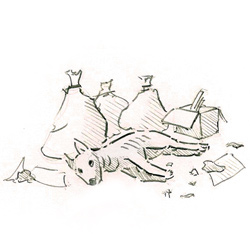
TO RAISE PUBLIC AWARENESS
... and respect for animals through extensive education.
Animal abuse and neglect is prevalent throughout all the states in Mexico. The suffering of many of the animals is unimaginable. Untreated injuries from car accidents, deliberate mutilation and poisonings, preventable critical diseases, malnutrition, shootings and more atrocities are all too common. And all too often people will walk past starving, sick and severely injured animals for days on end with no thought to seeking help for them or alleviating their suffering.
The development of a society that embraces animal welfare is a slow process. PEP has always worked very hard to create a community that is more compassionate towards animal needs.
The Shelter Outreach Program (SOP) was established in 2008 with the goal of helping animals of the wider community. By providing food and medicine to low income families PEP is able to help dogs at their own homes without the necessity of relocating them to the shelter. Daily visits are often necessary for the proper administration of medicine and to ensure that the owners are providing the food and fresh water to their dogs appropriately. Depending on the severity of the disease, and/or the willingness of the owner to comply with care, this work can continue for weeks or even months. While many owners do master the basics of animal welfare there have, unfortunately, been instances where, in the best interest of the dogs, PEP has had to persuade the owners to surrender their animals to the shelter.
The most important purpose of the Shelter Outreach Program is the education of the animal owners with regards to feeding appropriate food, the necessity of vaccinations and flea, tick and parasite control for disease prevention as well as the supreme importance of sterilization. The owners are also encouraged to spend time with their dogs and to provide them with regular supervised exercise as many dogs here live their lives on chains without ever having the opportunity to walk, play or enjoy human contact.
This program has had success in more than one way. Not only are there now owners who are more aware of their own animal’s needs but it has also helped to raise the awareness of the community in general. More people are coming forward to express concerns and advise PEP of other animals who might be in need of help. There are also more people in the community voluntarily taking their animals for sterilization.
One animal at a time, one family at a time, one community at a time. We can make a difference!
To quote Margaret Atwood:
